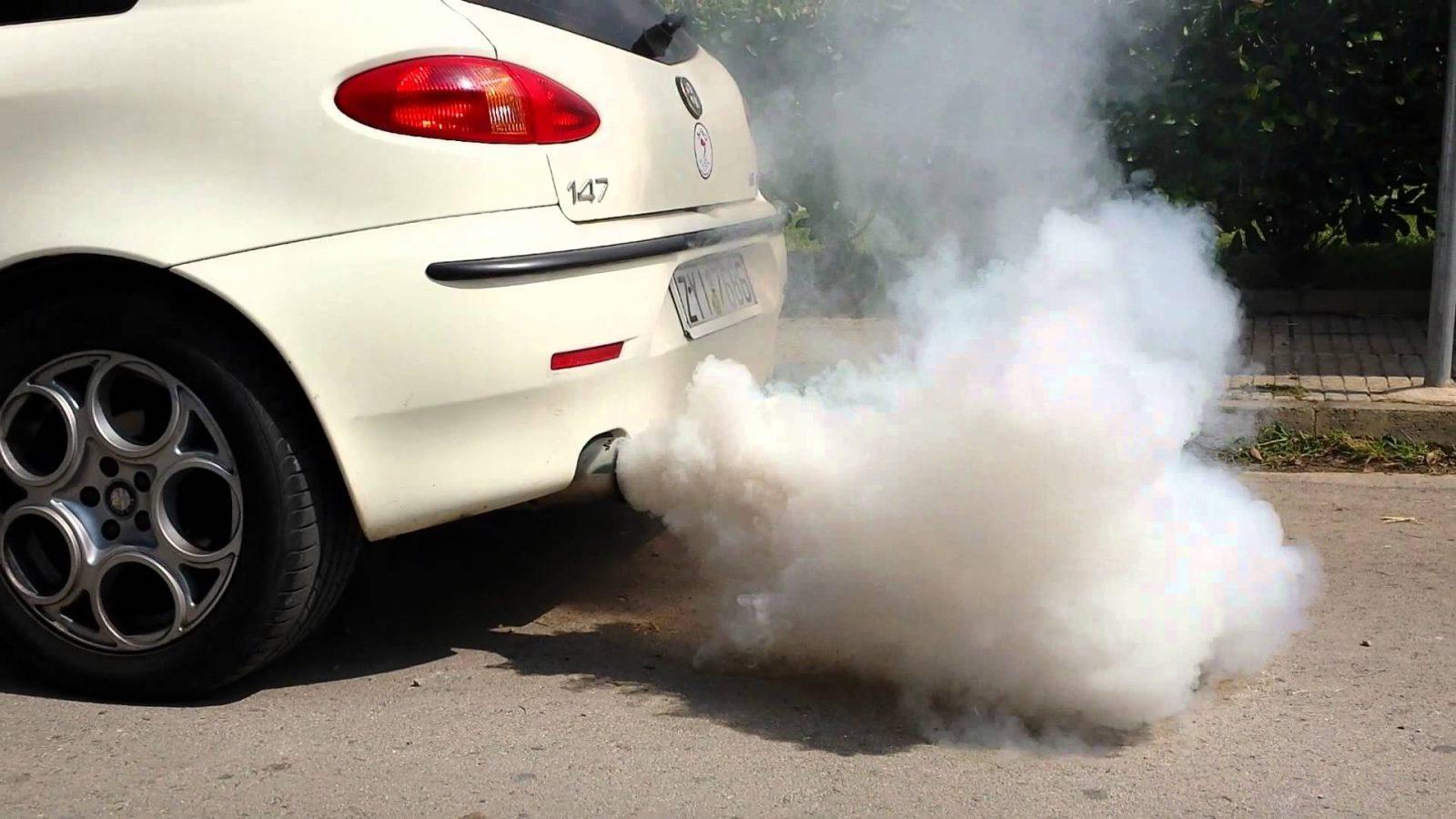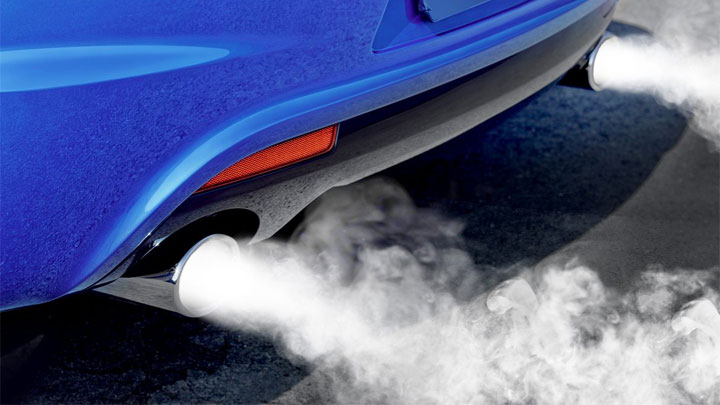
This is nothing but steam caused due to condensation. Blue exhaust smoke indicates that your engine is burning oil.

The diesel engine and petrol engine have different reasons for white smoke from the exhaust.
Smoke from exhaust diesel. To run correctly a diesel engine needs precise timing of the injector pump and proper pressure. Any decrease in the pressure or delay in delivering the fuel to the combustion chamber will cause incomplete combustion and you will have white smoke. This is a steady stream of lighter white smoke.
Unburned Fuel Entering the Exhaust Diesel Engines White smoke pouring out of the tailpipe of a diesel-powered vehicle indicates that unburned or partially burned fuel is entering the exhaust. The root cause of this lean condition could be anything from a faulty fuel pump to bad glow plugs. Potential Causes of Blue-Gray or White-Gray Smoke.
What Your Car Trying To Tell You By White Smoke From Exhaust Broken Fuel Pumping Injection. White smoke most common reason is a broken injection. Does your car run on diesel.
Another white smoke issue is the leaking coolant. The indication is apparent when white smoke. White smoke can be a result of raw diesel coming out of a cars exhaust before it has been burned properly.
Blue smoke can potentially be emitted during a cold start when the car is idle because oil is being burnt. Of all the different colours of smoke that can. Useful information Causes of blue smoke from diesel engines exhausts Blue smoke coming from your engine is a warning sign you cant ignore.
Its never a good sign and could indicate a problem with your engine so the sooner you address it the lower the risk of causing lasting damage. Diesel engine smoke comes in three colors. White black and blue.
Consistent smoke coming from the exhaust most likely indicates a deeper internal problem with the engine. A small puff of smoke during quick acceleration is acceptable with older diesel engines due to a lag before the turbochargers air flow can match the increased volume of diesel fuel injected into the cylinders. The diesel engine and petrol engine have different reasons for white smoke from the exhaust.
If it is the case with the diesel engine then white smoke generally comes out due to incomplete combustion where fuel remains unburned. And this fuel mist comes out from the exhaust in the form of white smoke. Blue smoke usually appears in the morning when your engine starts up for the first time of the day.
Blue exhaust smoke indicates that your engine is burning oil. Though this is primarily a problem in older cars not taking care of maintenance issues can cause oil burning regardless of year. Maybe you are like me and have to look it up every time.
This is the complete guide to blue smoke from a diesel. Why would a diesel have blue smoke. Blue smoke occurs when excess lubricating oil is present within the engine cylinders during combustion.
When this oil is burnt it will exit the exhaust as blue smoke. One of two conditions is responsible for white smoke blowing out of your exhaust. In most cases especially in the winter some white smoke from your exhaust is perfectly normal and not something to worry about.
But other causes may be cause for alarm. On cold winter days it is common to see white smoke from exhaust pipe as soon as you start the car. This is nothing but steam caused due to condensation.
As the engine warms up after a few minutes this white smoke will not be reduced because condensation is dissipated. It should reduce or even disappear after the car becomes reasonably warm. White smoke can be caused by either excess fuel or an internal coolant leak in your engine.
This is a case where youll probably want to call in the diesel pros but heres a diagnostic tip. While the engine is smoking hold your hand over the exhaust outlet for 20 seconds or so. A diesel engine in good condition should produce no visible smoke from the exhaust under most operating conditions.
A short puff of smoke when an engine is accelerated under load may be acceptable due to the lag before the turbocharger speed and air flow is able to match the volume of diesel injected into the cylinders. The most frequent times to get black smoke from a diesel exhaust are the the first moment the engine is switched on especially from cold and when hard acceleration is suddenly called for. Besides from being a sign of excess oil burning in your diesel engine the smoke could also indicate.
A faulty PCV Positive Crankcase Ventilation valve This part is responsible for emission control. It reduces the cars emission as it draws unburnt fuel back from the lower part of the engine back to the top. The mixture of fuel and these deposits will reduce the fuel economy and lower the performance of the engine causing black smoke emitted from the exhaust pipe.
Luckily you can mix the diesel fuel with a detergent additive to get rid of these harmful deposits. The black smoke will disappear after a few days after you do that. Blue exhaust smoke in a diesel vehicle could still mean oil is being burned but it could also mean the engine oil is being atomized.
This could be caused by. High engine oil levels Worn out piston rings. There are several issues that will lead to black smoke from the exhaust.
These can be a result of a clogged air filter blocked manifold malfunctioning fuel injection or other issues. When we look at both diesel and petrol cars we know black smoke is emitted when the engine is burning fuel.